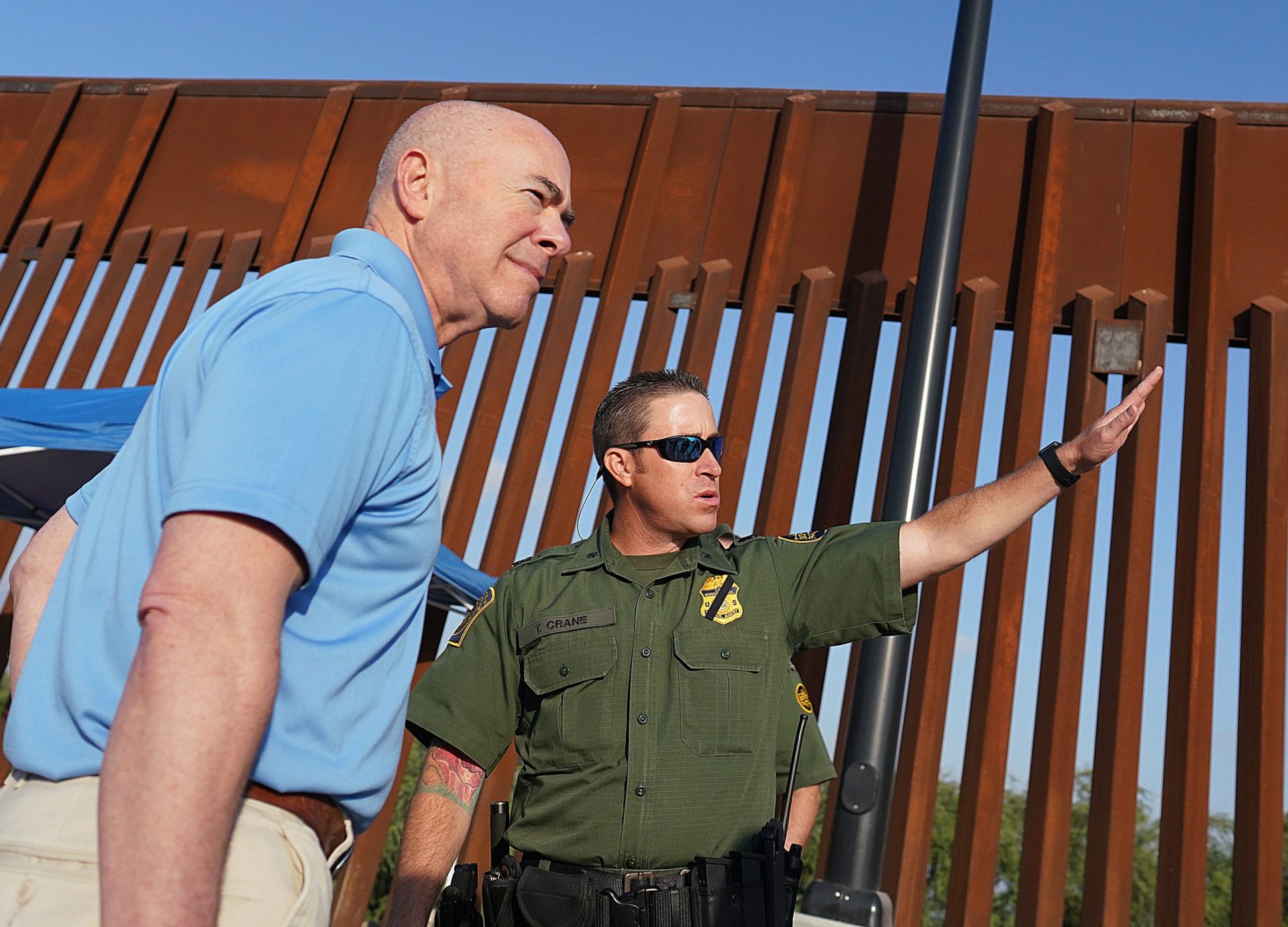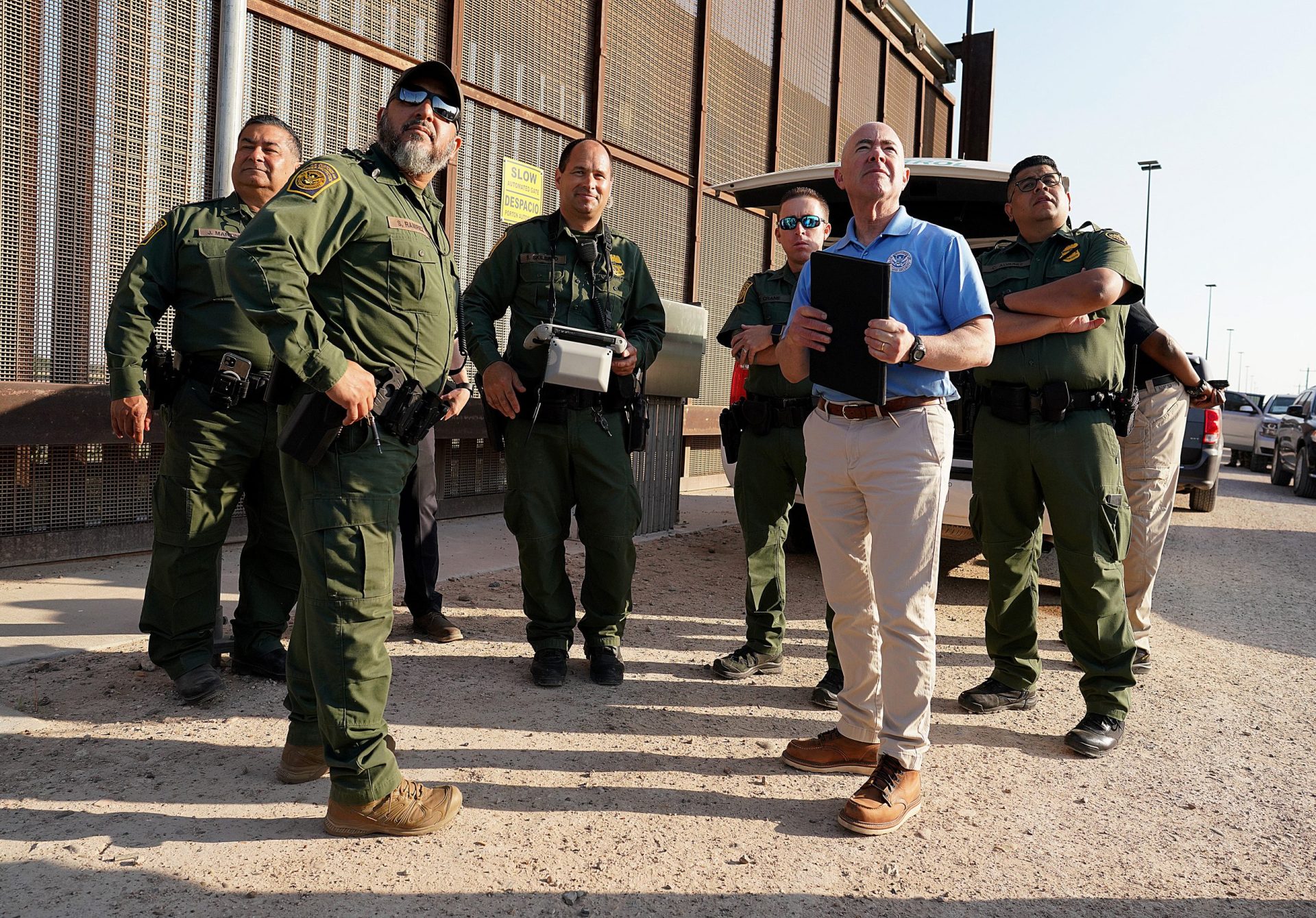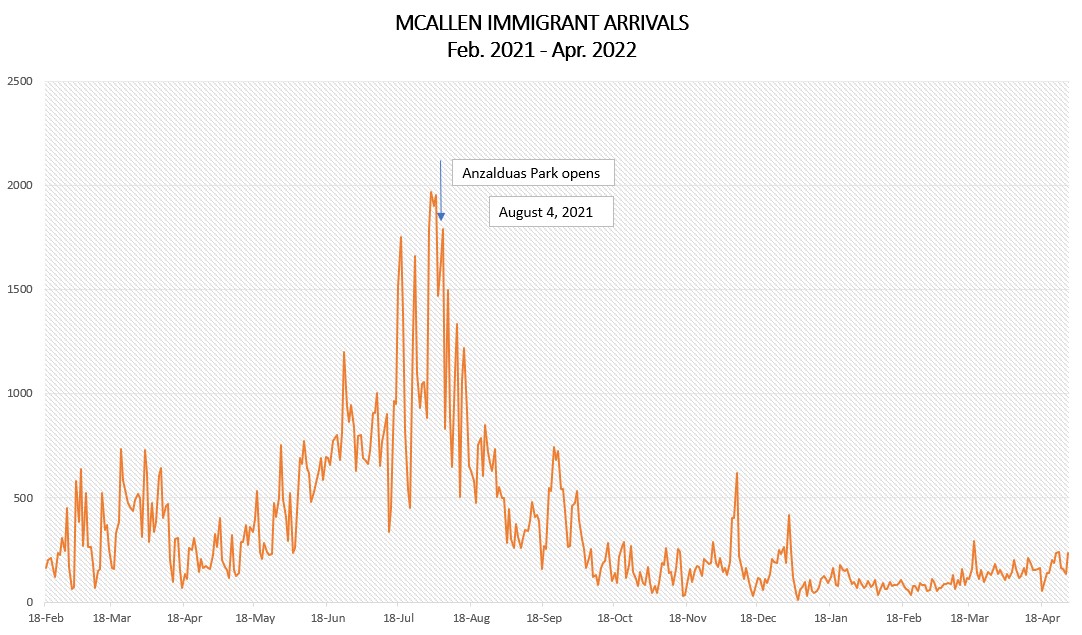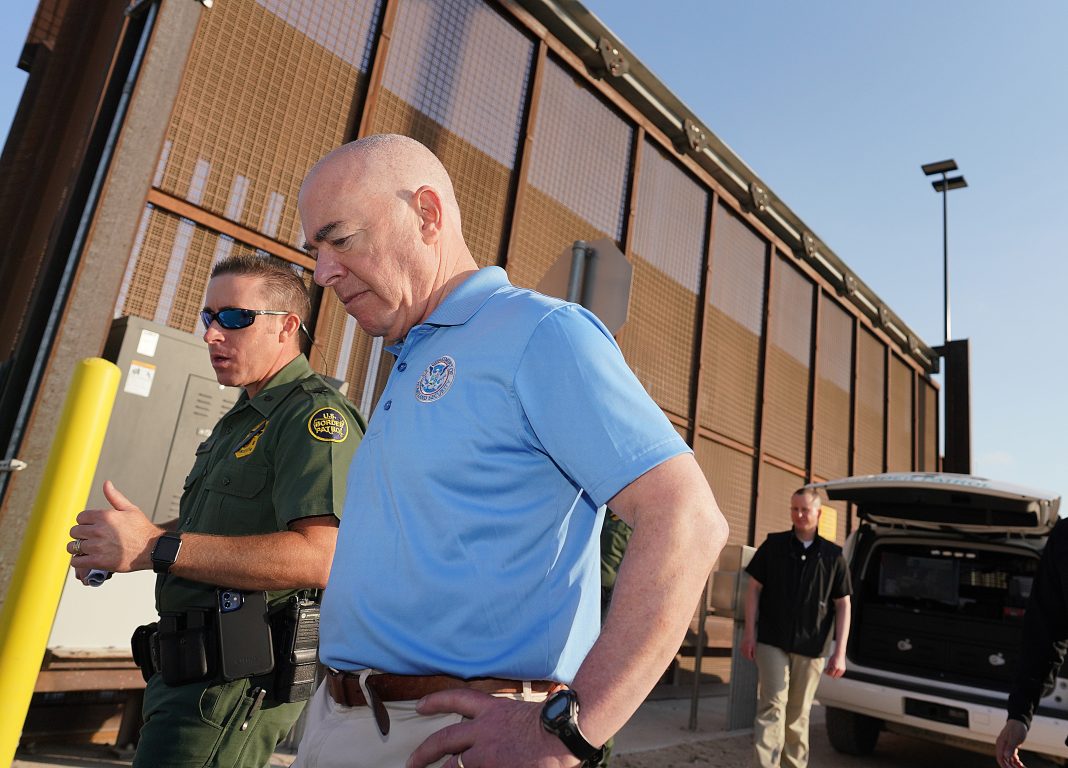|
Only have a minute? Listen instead
Getting your Trinity Audio player ready...
|
Department of Homeland Security Secretary Alejandro Mayorkas visited the Rio Grande Valley on Tuesday to deliver a message to migrants planning to head north and to seek input from those preparing to handle the increase — all as anxiety builds over the possible end of a public health policy that bars migrants from seeking asylum at the border next week.
As the sun slowly rose, warming the cool morning air at Valley International Airport in Harlingen, three charter buses carrying 132 men and women rolled onto the tarmac and approached a plane heading to Guatemala about 7 a.m. Tuesday.
One by one, the migrants descended the buses. Contracted security officers patted them down, inspected their shoes for weapons, and medical staff screened them for symptoms that would keep them from traveling back to their home country.
All tried to enter the U.S., but were sent back through a public health policy known as Title 42. This public health code has been leveraged nearly 1.9 million times to expel migrants since the Centers for Disease Control and Prevention determined it was necessary to safeguard the public’s health back in March 2020, according to government data.

After 26 months, the CDC determined the policy, temporary by nature, would no longer be applied to migrants as of May 23. A federal court in Louisiana is considering whether a delay is necessary, but DHS officials said they’ve been preparing for the change since September of last year.
While migrants boarded a repatriation flight in Harlingen, Mayorkas took his 10th tour of the border visiting the busiest sector of the Border Patrol in the southwest border — the McAllen station.
Mayorkas’ first stop was in La Joya, where he was briefed by agents who said they are in need of more manpower and technology. They explained traffic patterns shifted in recent months from a majority of families to single adults, a pattern that ran contrary to the national downward trend reported for April, when Border Patrol agents encountered 10,000 fewer single adults crossing the border.
Border Patrol officials also told the secretary that re-implementing consequences for illegal border crossings, including the use of 8 USC 1325 — the misdemeanor for crossing the border illegally — would likely help reduce the number of illegal crossings by single adults.
“We do intend to bring criminal prosecutions, when the facts so warrant,” Mayorkas said later in a news conference. “We will be increasing the number of criminal prosecutions to meet the challenge, because the fact of the matter is there are more cases that warrant criminal prosecutions than the cases that are being brought.”
Mayorkas and his team also took a tour of the processing center recently reopened in McAllen and the Anzalduas Park, an area visited by Gov. Greg Abbott in March 2021 when he announced the state’s response to an increase in migration along the border known as Operation Lone Star. The governor increased his efforts throughout the last couple of months, including state-sponsored bus trips that took thousands of migrants released from federal custody in border cities to the “steps of the U.S. capital,’ as Abbott declared.
The DHS secretary described Texas’ border response — particularly the increased inspection of trailers by Texas Department of Public Safety troopers that resulted in protests at the Pharr-Reynosa International Bridge, and which led to the burning of trucks and unbearable delays — as fruitless.

“We saw the result of an uncoordinated, uncollaborative effort in the screening of trucks that had an incredibly adverse impact on the economy here in McAllen and elsewhere along the border, and I heard that loud and clear earlier today from local officials,” Mayorkas said.
The concern that ran silently as an undercurrent Thursday was the future after Title 42 is no longer implemented.
“In the immediate term, I think we’re concerned that we (will) see a greater level of encounters at the border,” Mayorkas said candidly.
The department released a 20-page memorandum in April with a six-pillar plan for addressing the possibility of thousands of encounters along the border when the policy changes.
It called for a surge of “resources, including personnel, transportation, medical support, and facilities to support border operations; increasing processing efficiency, while maintaining the integrity of our screening processes, in order to reduce strain on the border; administering consequences for unlawful entry, including expedited removal and criminal prosecution; bolstering the capacity of NGOs and coordinate with state, local and community partners; targeting and disrupting transnational criminal organizations and human smugglers; and deterring irregular migration south of our border, in partnership with other federal agencies and nations.”
Mayorkas said the U.S. is working with other countries like Mexico, Costa Rica and Panama to cooperate, increase law enforcement, surge resources and share information to address the expected spike in immigration attempts.
In McAllen, the city has seen a small increase in the number of migrants released from federal custody from 117 in March to 157 in April.

Combined efforts between the Rio Grande Valley Catholic Charities and the city help address the cost associated with helping migrants find their way to a bus station or airport, shelter and feed them while they wait, and provide medical care.
McAllen Mayor Javier Villalobos said while he appreciates the attention the Valley receives from D.C. officials like Mayorkas, he isn’t sure what visits to the area like Tuesday’s will accomplish.
“Whether you visit or not visit, whether the president, the vice president comes and sees the issues, it’s not going to solve the issues. That’s why I’ve changed my tune,” Villalobos said Monday. “Now what I’m saying is, ‘look, don’t come see us. Stay in Washington and take care of the problem. That’s where it’s going to be taken care of, not over here.”
The Biden administration is hoping a clear message is sent through events like Tuesday’s, which highlight the consequences of illegally immigrating into the country — such as repatriation flights, Border Patrol apprehensions and criminal prosecution — will be enough to curb the numbers when Title 42 is no longer in place.
As Mayorkas stood before a crowd of regional and national reporters at the end of his visit during the news conference, he addressed a key problem — misinformation.
“The smugglers peddle misinformation. We see the misinformation that they peddle, that Title 42, for example, does not apply to certain populations. That information is false,” Mayorkas sternly said. “The laws of the border will be enforced. If one does not qualify for relief, one will be removed.”





